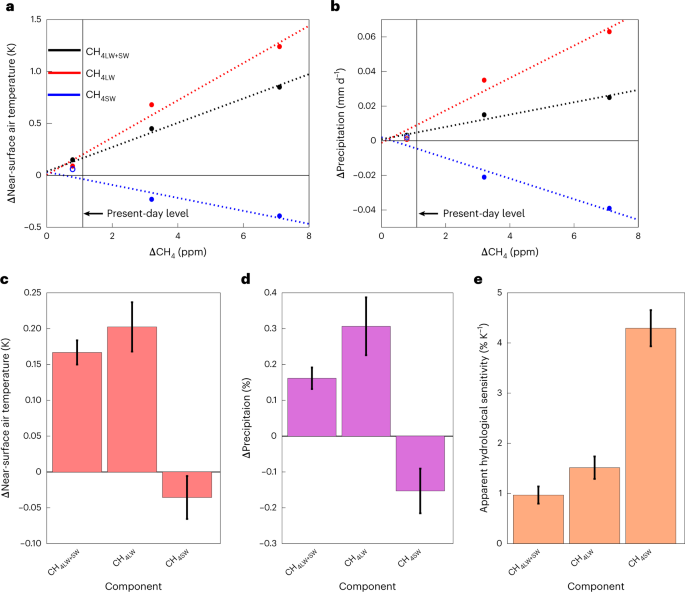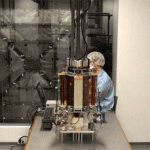2023-03-27 カリフォルニア大学リバーサイド校(UCR)
研究チームは、長波長エネルギーと短波長エネルギーの両方をシミュレートした詳細なコンピュータモデルを作成し、この結果を明らかにした。メタンの濃度が異なる場合にどのように影響するかについての追加の実験を行う予定である。
<関連情報>
- https://news.ucr.edu/articles/2023/03/27/surprise-effect-methane-cools-even-it-heats
- https://www.nature.com/articles/s41561-023-01144-z
メタンの長波放射効果による地表の温暖化と湿潤化は、短波の吸収により緩和される。 Surface warming and wetting due to methane’s long-wave radiative effects muted by short-wave absorption
Robert J. Allen,Xueying Zhao,Cynthia A. Randles,Ryan J. Kramer,Bjørn H. Samset & Christopher J. Smith
Nature Geoscience Published:16 March 2023
DOI:https://doi.org/10.1038/s41561-023-01144-z

Abstract
Although greenhouse gases absorb primarily long-wave radiation, they also absorb short-wave radiation. Recent studies have highlighted the importance of methane short-wave absorption, which enhances its stratospherically adjusted radiative forcing by up to ~ 15%. The corresponding climate impacts, however, have been only indirectly evaluated and thus remain largely unquantified. Here we present a systematic, unambiguous analysis using one model and separate simulations with and without methane short-wave absorption. We find that methane short-wave absorption counteracts ~30% of the surface warming associated with its long-wave radiative effects. An even larger impact occurs for precipitation as methane short-wave absorption offsets ~60% of the precipitation increase relative to its long-wave radiative effects. The methane short-wave-induced cooling is due largely to cloud rapid adjustments, including increased low-level clouds, which enhance the reflection of incoming short-wave radiation, and decreased high-level clouds, which enhance outgoing long-wave radiation. The cloud responses, in turn, are related to the profile of atmospheric solar heating and corresponding changes in temperature and relative humidity. Despite our findings, methane remains a potent contributor to global warming, and efforts to reduce methane emissions are vital for keeping global warming well below 2 °C above preindustrial values.



